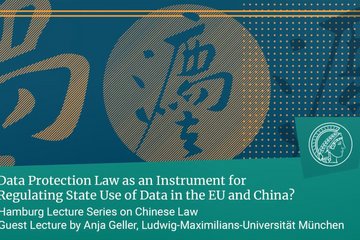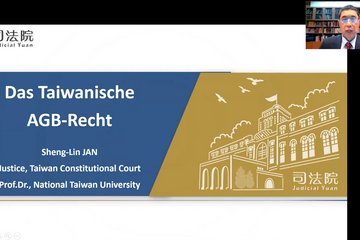China allows for internet lawsuits
In China, it has since 2017 been possible to conduct certain court procedures entirely online. The filing of a claim as well as service of the claim on the opposing party is done digitally. The plaintiff and the defendant do not need to appear before court as the oral proceedings are conducted by video conference. On agreement of the parties, the judgment as well can be delivered electronically.

The Internet Courts (for example https://www.netcourt.gov.cn) that have been set up in Beijing, Guangzhou and Hangzhou are responsible for certain civil and administrative disputes, provided there is an underlying connection to the internet. Specifically mentioned are lawsuits regarding sales contracts (including product liability matters), services and loans when the original transaction was processed online. Given the importance of online shopping in China, this newly created legal procedure might become quickly and firmly established.
In the framework of his research on the enforcement of consumer rights in China, Knut Benjamin Pißler, senior research fellow and head of the Centre of Expertise on China and Korea at the Institute, has examined the legal foundations and the procedural details of Internet Courts. In an article just published in the German Journal of Chinese Law, he identifies central legal questions associated with the phenomenon.
"There are some indications that defendants can avoid the proceedings relatively easily," says the Chinese law expert. When filing a complaint, applicants must identify themselves on a specially established internet lawsuit platform, providing their mobile phone number, ID card number or social credit identifier as well as the defendant's electronic contact details. When the lawsuit is served on the opposing party, the latter is asked to respond to the case by means of a digital identification process. "It is unclear what will happen if defendants fail to comply with this request."
Conversely, when it comes to regulating service of process, the question arises as to whether defendants are given sufficient legal protection. “The Beijing Internet Court's handbook suggests that a complaint can also be effectively served on an electronic address that the defendant has used in the past. An identity check or some other affirmative action on the part of the recipient is not foreseen. This would create a need to regularly monitor email addresses or mobile phone numbers used in the past in order to find out whether a lawsuit has been initiated against you”, says Pißler.
In his view, the Internet Courts also lack a secure legal foundation. From a legal point of view, new courts can be created only by decision of the Standing Committee of the National People's Congress. The legal basis of the Internet Courts, however, is solely a decision of the Communist Party and a judicial interpretation of the Supreme People's Court. What may initially seem theoretically appealing could lead to considerable problems in practice. If judgments issued by these courts which lack a legal foundation are without effect, they cannot be subject to enforcement and thus offer no legal certainty.











